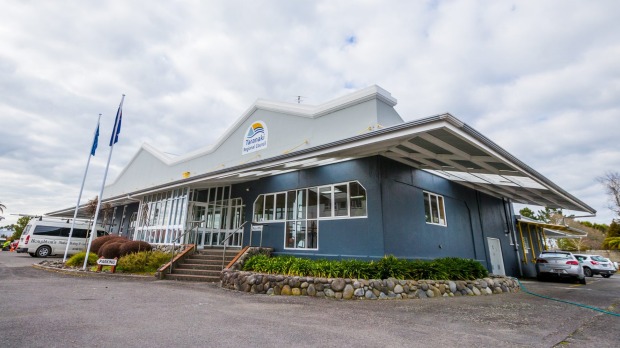Consejo Regional taranaki permanecer neutral en la explotación minera
The Taranaki Regional Council will remain neutral in its submission to the EPA.
Opposition against proposed seabed mining in South Taranaki seems to be waning.
In October the Department of Conservation announced they would not be submitting against mining company Trans Tasman Resources in their bid to mine a 66 square kilometre patch of the seabed in South Taranaki of its iron ore.
Now, the Taranaki Regional Council has taken a neutral line, as they did when the first application was before the Environmental Protection Authority in 2014.

KASM Chairman Phil McCabe said opposition to the mining is still as strong as ever.
However, the group leading the charge against the company – Kiwis Against Seabed Mining – remains confident opposition is still strong.
Their chairman Phil McCabe said there were already more submissions against the company than when they last applied two years ago.

One of the council’s main concerns was for little blue penguins that migrate to the area from the Marlborough Sounds.
«Opposition is stronger than it’s ever been,» he said.
«The fact that all eight Taranaki iwi are united against the proposition speaks volumes in itself.»
However, McCabe said he understood the council’s position in wanting to remain neutral.

The 66 square kilometres off the South Taranaki coast where Trans Tasman Resources have applied to mine iron ore.
«It’s kind of expected that a local body like the TRC wouldn’t hold a position for or against,» he said.
«It can be a strategy to remain objective, like the Environmental Defence Society last time round remaining neutral even though they had heaps of issues with the application.»
The council’s area of responsibility only extends to the 12 nautical mile mark out to sea past which is the Exclusive Economic Zone that is the jurisdiction of the Environmental Protection Authority.
Though the council doesn’t have any authority outside the 12 mile mark they argued last time the effects of the mining could impact inside the council’s Coastal Marine Area.
McCabe said he was «a bit disappointed» at the council’s position as the effects of the mining would be felt within their area.
«I understand that’s not their area but a line made by humans doesn’t stop the environmental effects,» he said.
Council chief executive Basil Chamberlain said at a meeting of the policy and planning committee on Thursday that Trans Tasman Resources had provided much better information in their second application.
«They have sharpened up their thinking a lot more than was the case in the first application,» he said.
«There’s more solid research about the effects of the sediment plume and there’s a raft of better information and sources to enable the decision making to be better informed.»
However, council staff did highlight some areas of concern within the committee meeting’s agenda.
One of which was the fate of at risk little blue penguins migrating from the Marlborough Sounds that make foraging trips to Moturoa Island in South Taranaki.
The penguins feed at the Patea Shoals and the council was concerned the sediment plume created by uplifting sand would affect the penguin’s prey.
The Environmental Protection Authority – the government agency reviewing the mining application – recently lost a court battle with Kasm to release hundreds of pages of blacked-out commercially-sensitive information provided by TTR.
McCabe said Kasm’s scientists and lawyers were still working through the now publicly available information to determine its significance.
– Stuff
Fuente:
http://www.stuff.co.nz/business/86813196/taranaki-regional-council-staying-neutral-on-seabed-mining
Fuente imagen:
https://lh3.googleusercontent.com/gbv3h8Rxxr3dz69DtWXyQrO__SwdvrOHFLwj98LOIxEdBuAwHHgN47YZnx4aTk5w4lZvvgA=s85








 Users Today : 109
Users Today : 109 Total Users : 35402658
Total Users : 35402658 Views Today : 138
Views Today : 138 Total views : 3331758
Total views : 3331758